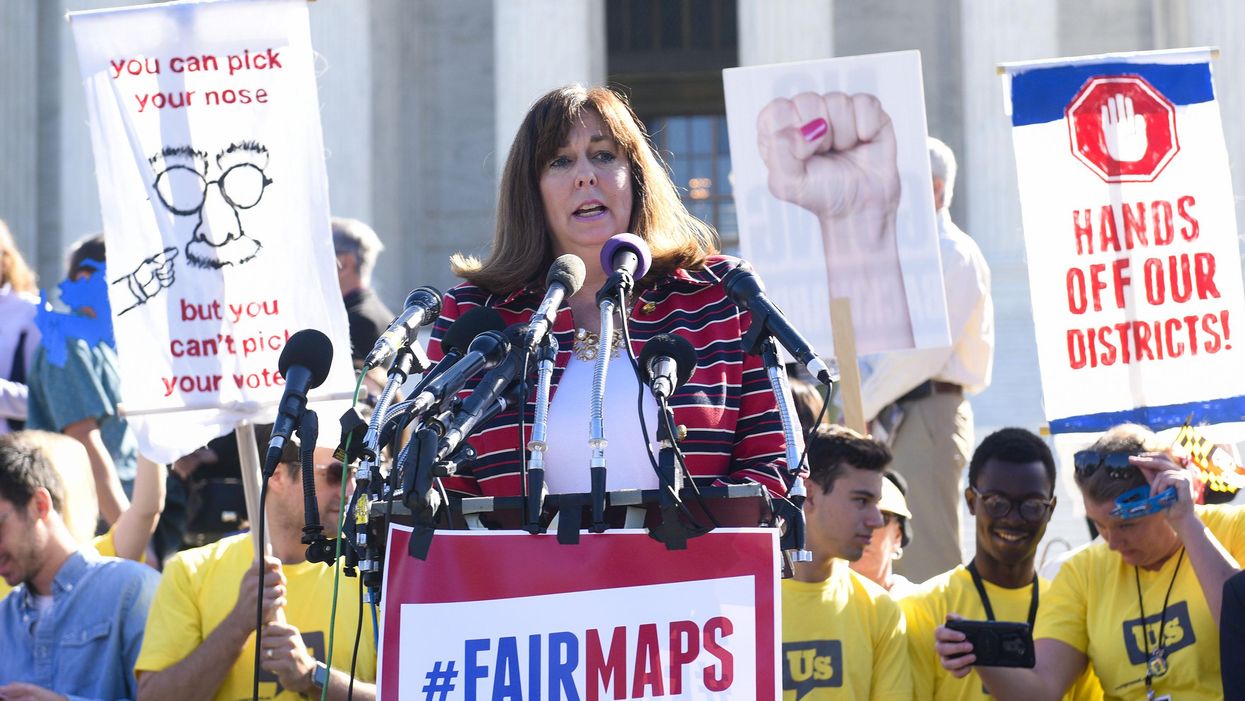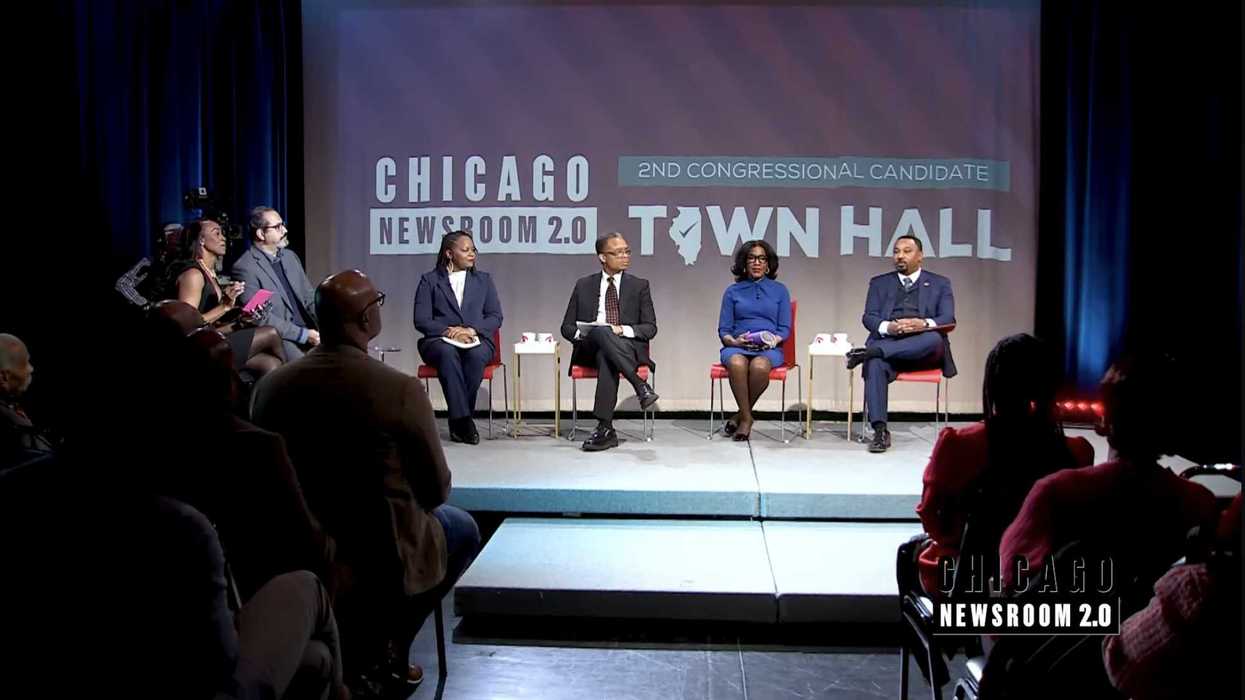This is the third installment of an ongoing Q&A series.
As Democrats take power in Washington, if only tenuously, many democracy reform groups see a potential path toward making the American political system work better. In this installment, Karen Hobert Flynn, president of Common Cause, answers our questions about 2020 accomplishments and plans for the year ahead. Her organization has long been on the front lines of advocating for democracy reform. Hobert Flynn's responses have been edited for clarity and length.
First, let's briefly recap 2020. What was your biggest triumph last year?
In an unprecedented election year, challenged by the pandemic and rampant disinformation, Common Cause worked to ensure that every voter was able to cast their ballot safely, securely and with the confidence that their ballot would be counted. We navigated and combatted an unprecedented amount of online voter intimidation and disinformation, and implemented a multipronged approach to fight suppression policies, actions and tactics from an array of special interests at all levels, up to and including the Trump administration.
From the beginning of the pandemic, Common Cause state leaders worked with allies and election officials to plan for how the pandemic and the political climate would impact voters and election administration. As we advanced solutions — from paper ballots to voting-by-mail — at the state level, we also worked with election officials to ensure that they had strong election security provisions in place.
Common Cause helped lead the nonpartisan Election Protection program, where we worked with a coalition of more than 100 national and state organizations on critical pieces of the program infrastructure, including communications, field and combatting disinformation. In the field program alone, we recruited, trained and deployed more than 40,000 poll monitors in 40 states. Overall, our grassroots volunteers sent and received more than 15 million texts to voters.
And your biggest setback?
False narratives about the election, specifically vote-by-mail, were deliberate and rampant. Social media companies failed to remove Donald Trump from their platforms in time, even though he was the biggest sower of these lies. Our anti-disinformation campaign's herculean effort to combat this was up against years of lies about the integrity of our elections. Trump created false narratives about election fraud before he was even elected in 2016. These lies convinced a significant number of Republicans that the election was stolen, which led to the violent insurrection on Jan. 6. We saw that when social media groups dropped Trump from its platform, disinformation dropped 73 percent.
What is one learning experience you took from 2020?
Words matter, and they can lead to violence. Lies, racism and words that stoke violence, repeated over time and left unchecked, do enormous damage. A president who will repeat these lies, abuse his office and threaten election officials can do untold damage to our democracy.
Now let's look ahead. What issues will your organization prioritize in 2021?
We will fight for accountability for those who tried to derail our democracy. We will push Congress to pass the For the People Act, the John Lewis Voting Rights Advancement Act, D.C. statehood and the Protecting our Democracy Act, along with reining in the power of social media platforms. We will continue to advance policy measures at the state level to expand voter access and ensure that our election infrastructure is secure and resilient. We will also fight against racial and partisan gerrymanders that deprive people of fair representation.
How will Democratic control of the federal government change the ways you work toward your goals?
We will be able to partner with a voting rights-minded Department of Justice, Department of Homeland Security and other government agencies to strengthen voter protections, voter access and election security. Democrats will have the ability to set the agenda, decide which bills move forward and have the power to convene hearings and put big ideas into practice. The term "Democratic control" needs to be qualified, though. So long as the Senate filibuster exists, Mitch McConnell can block bills that enjoy majority Senate support from going to President Biden's desk. The filibuster — what President Obama called a "Jim Crow relic" — needs to be addressed.
What do you think will be your biggest challenge moving forward? And how do you plan to tackle it?
Dismantling the architecture of systemic racism that allows laws like voter ID to masquerade as security as opposed to being seen as the voter suppression it is. The public is exhausted after four years of Donald Trump's poisonous time in office and the enormous damage he did. But we do not have the luxury of rest. Time is short, the list of priorities is long, and it will require Americans to stay engaged to make due on the promise of democracy.
Finish this sentence. In two years, American democracy will ...
be strengthened.




















